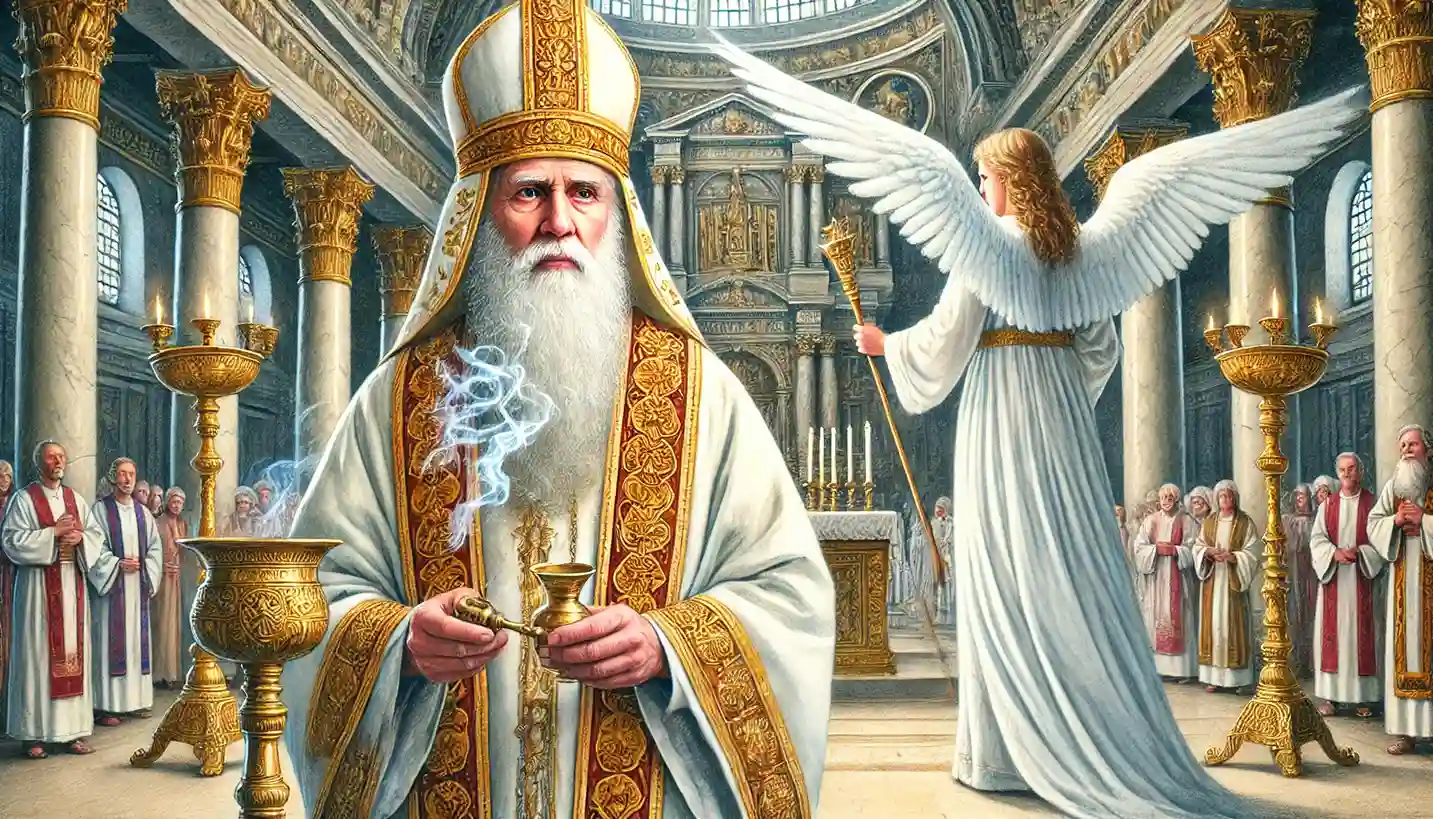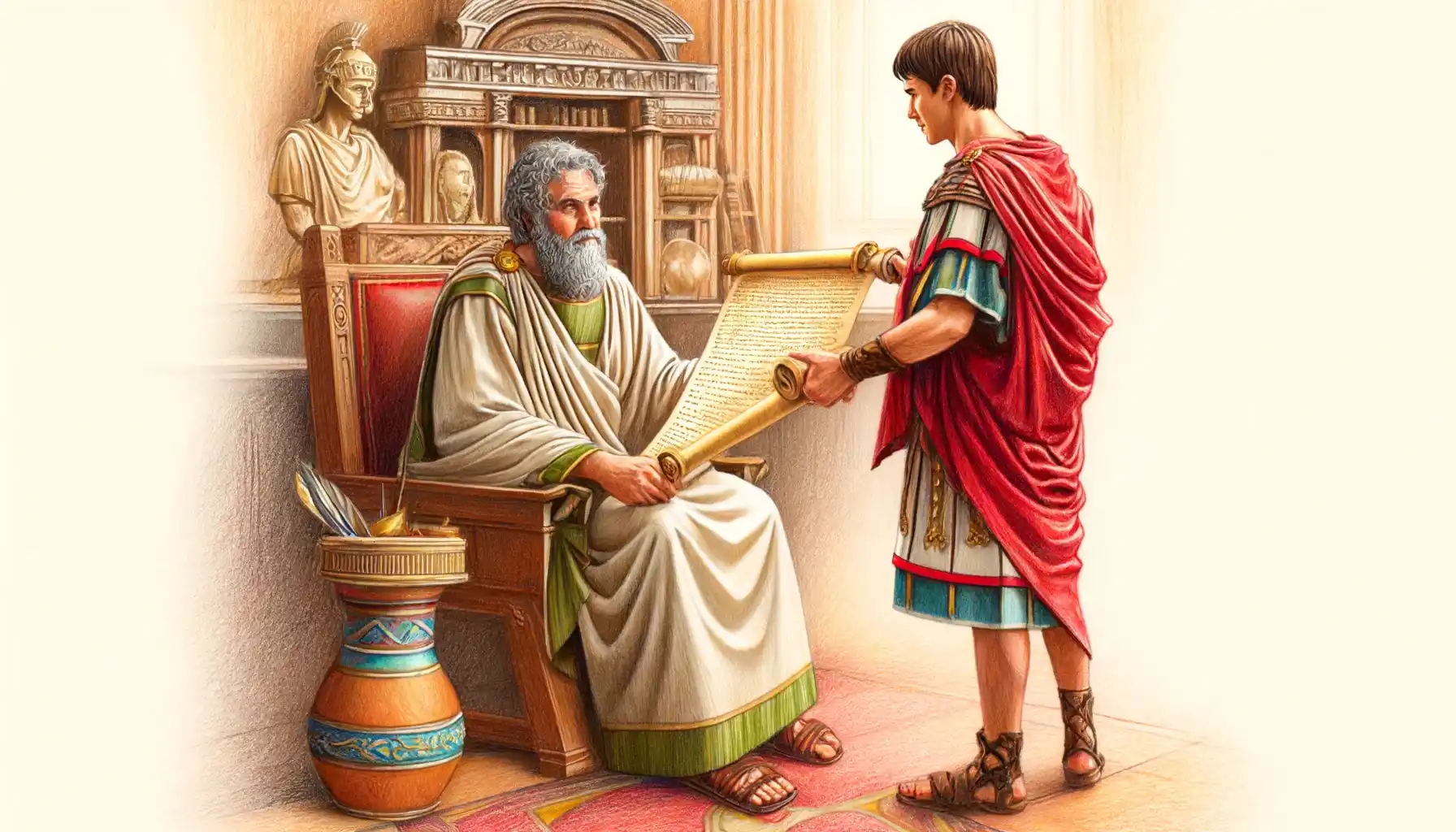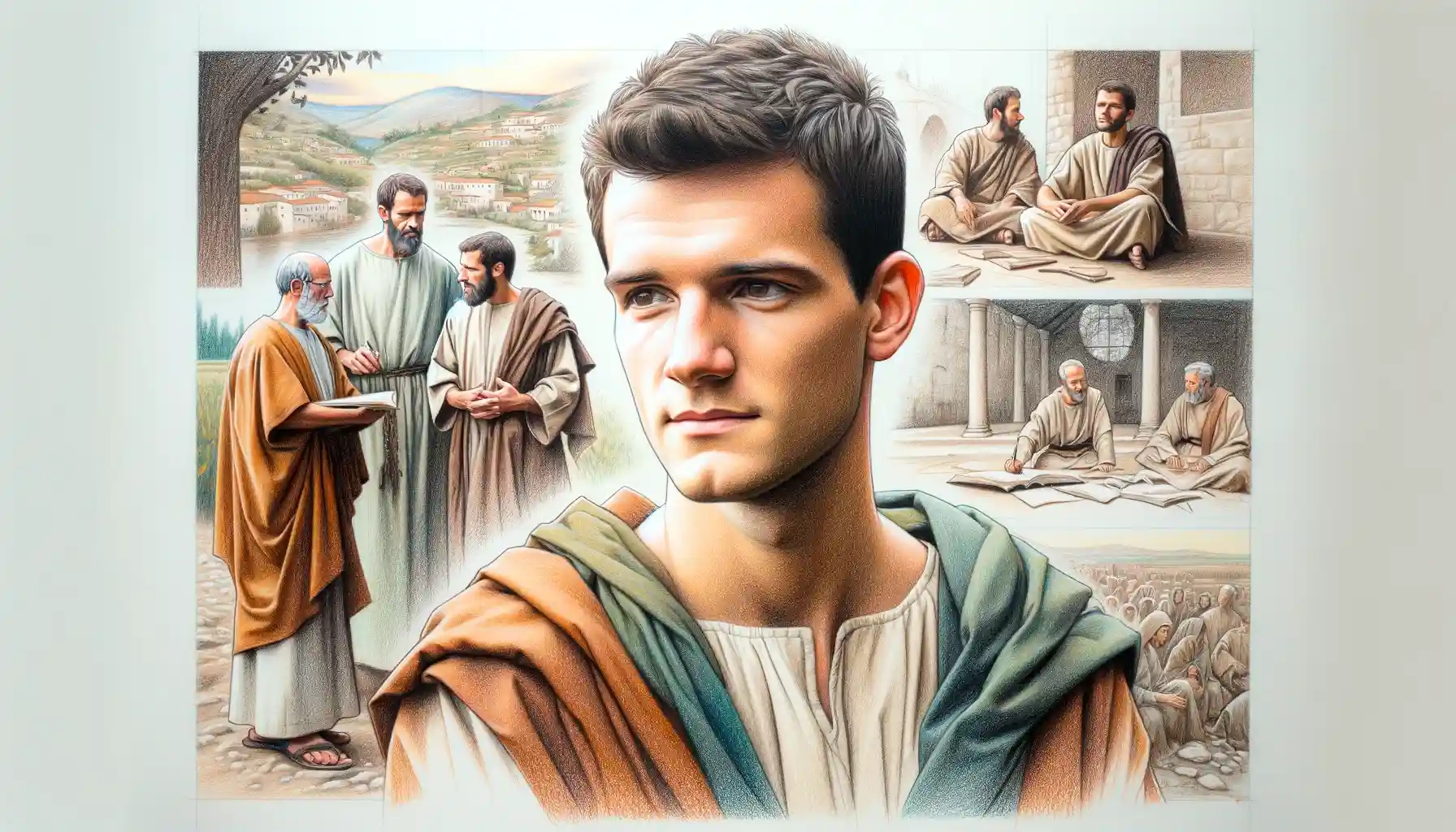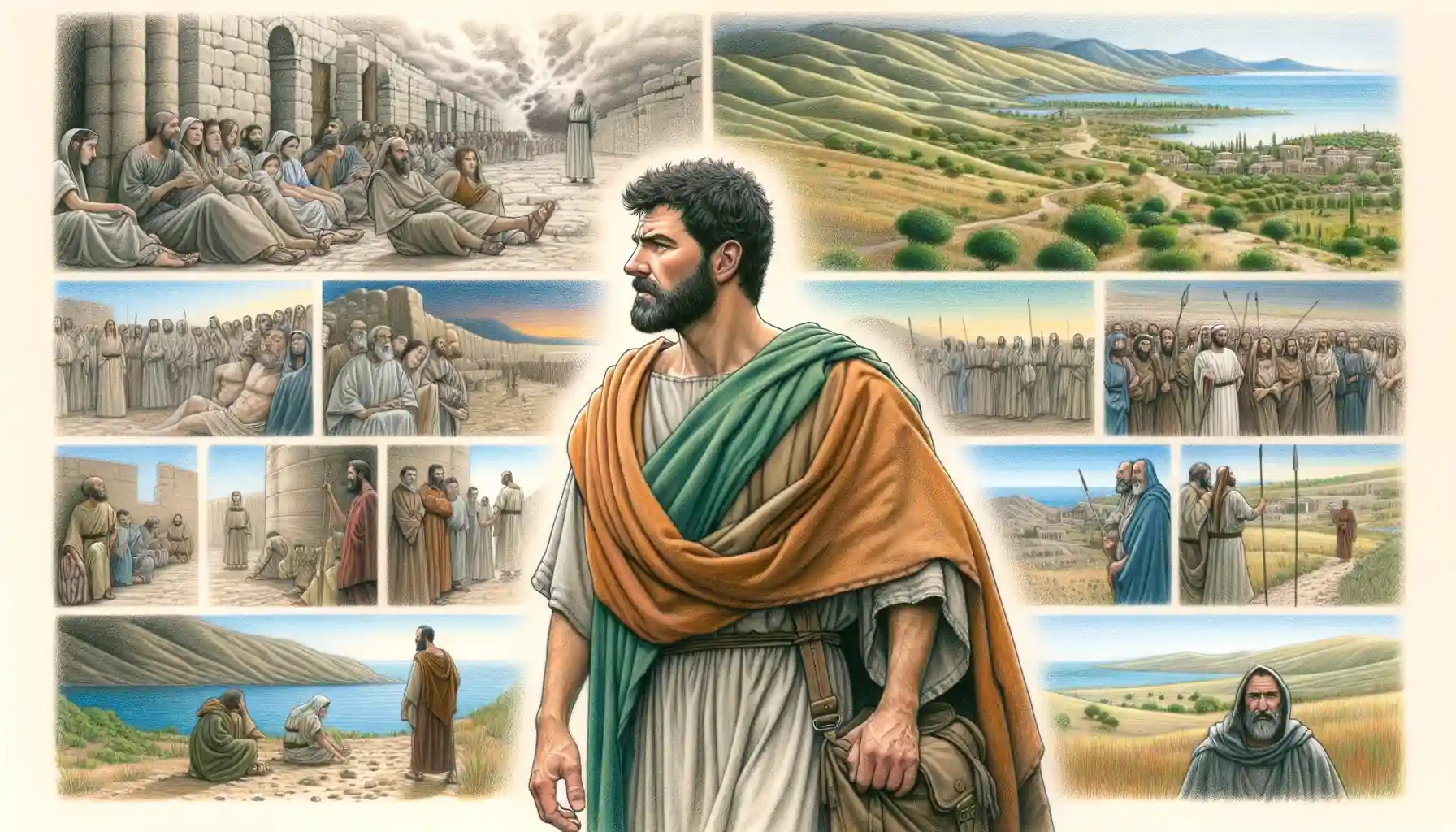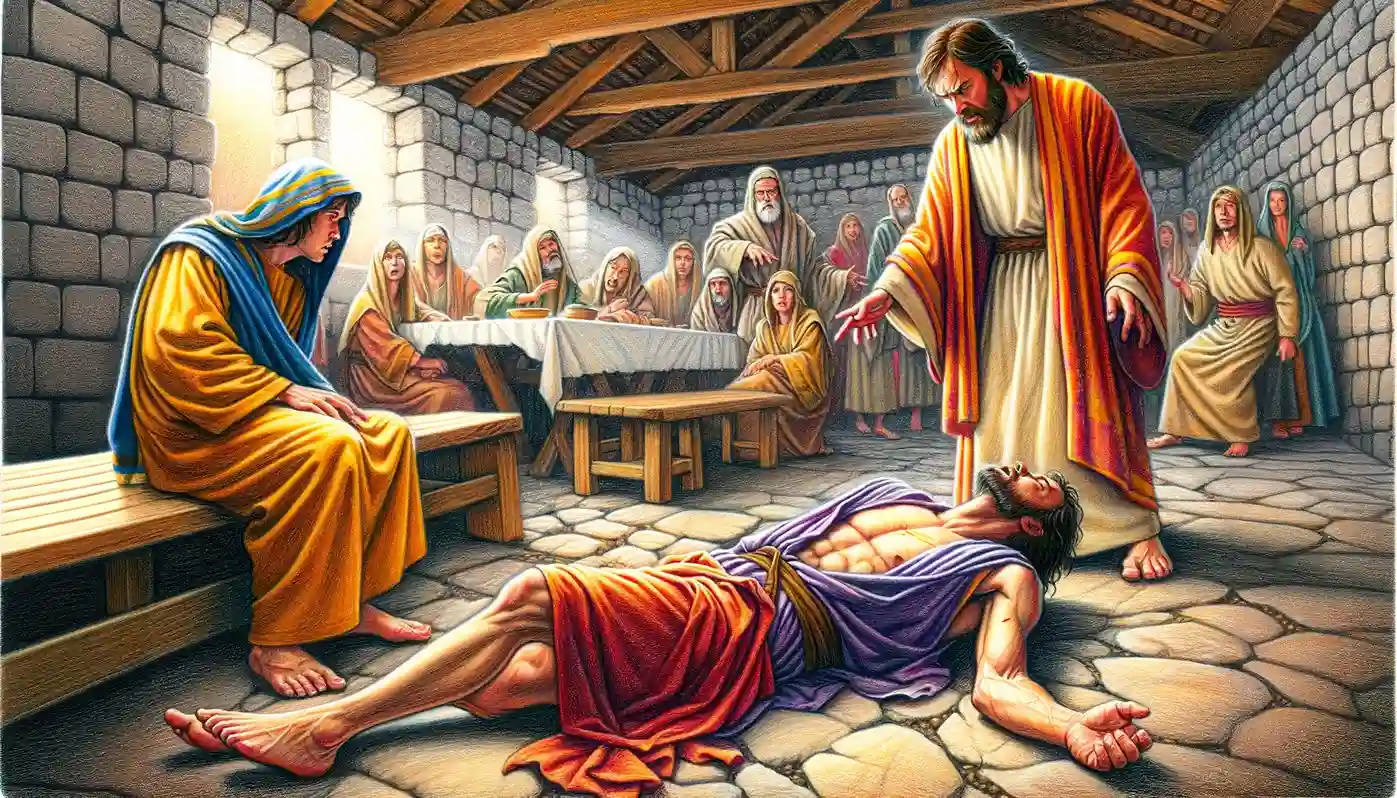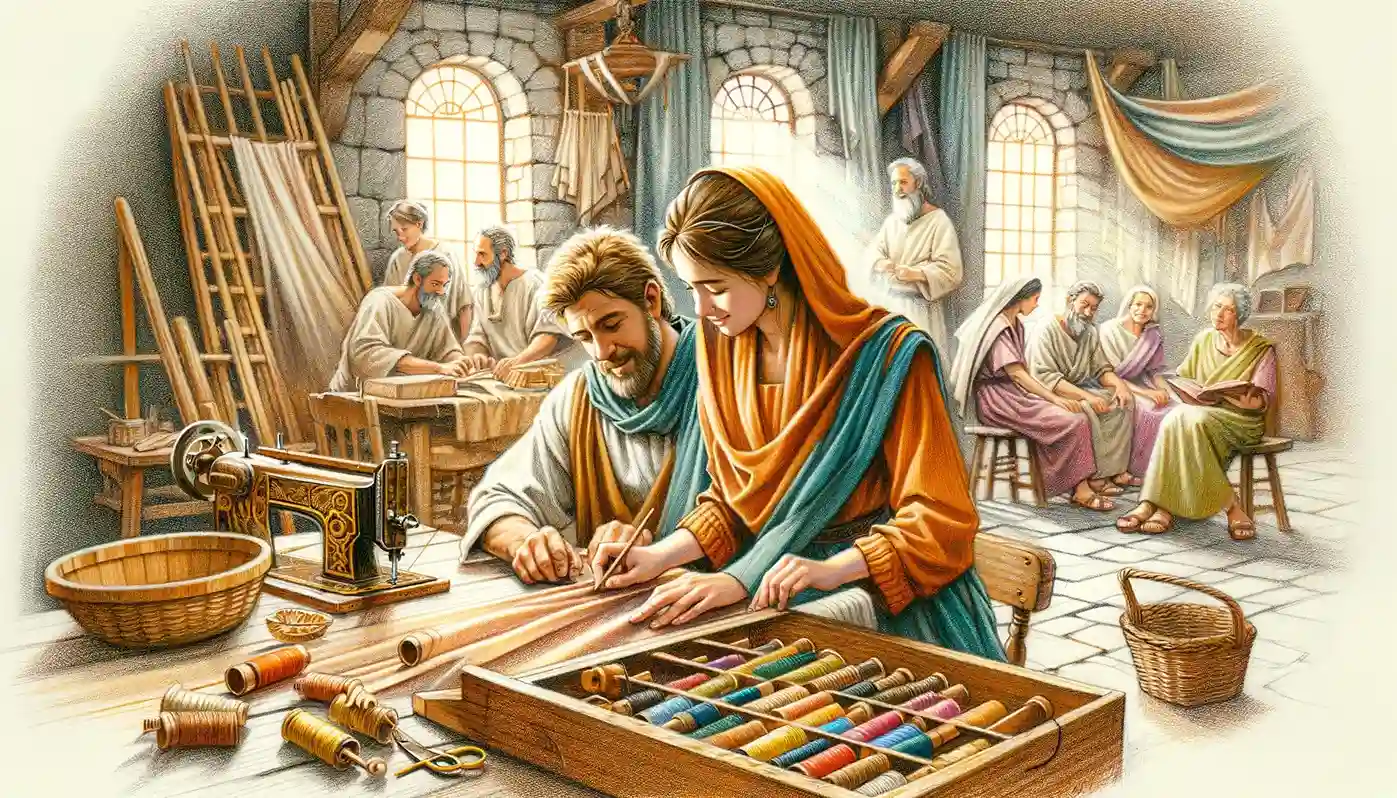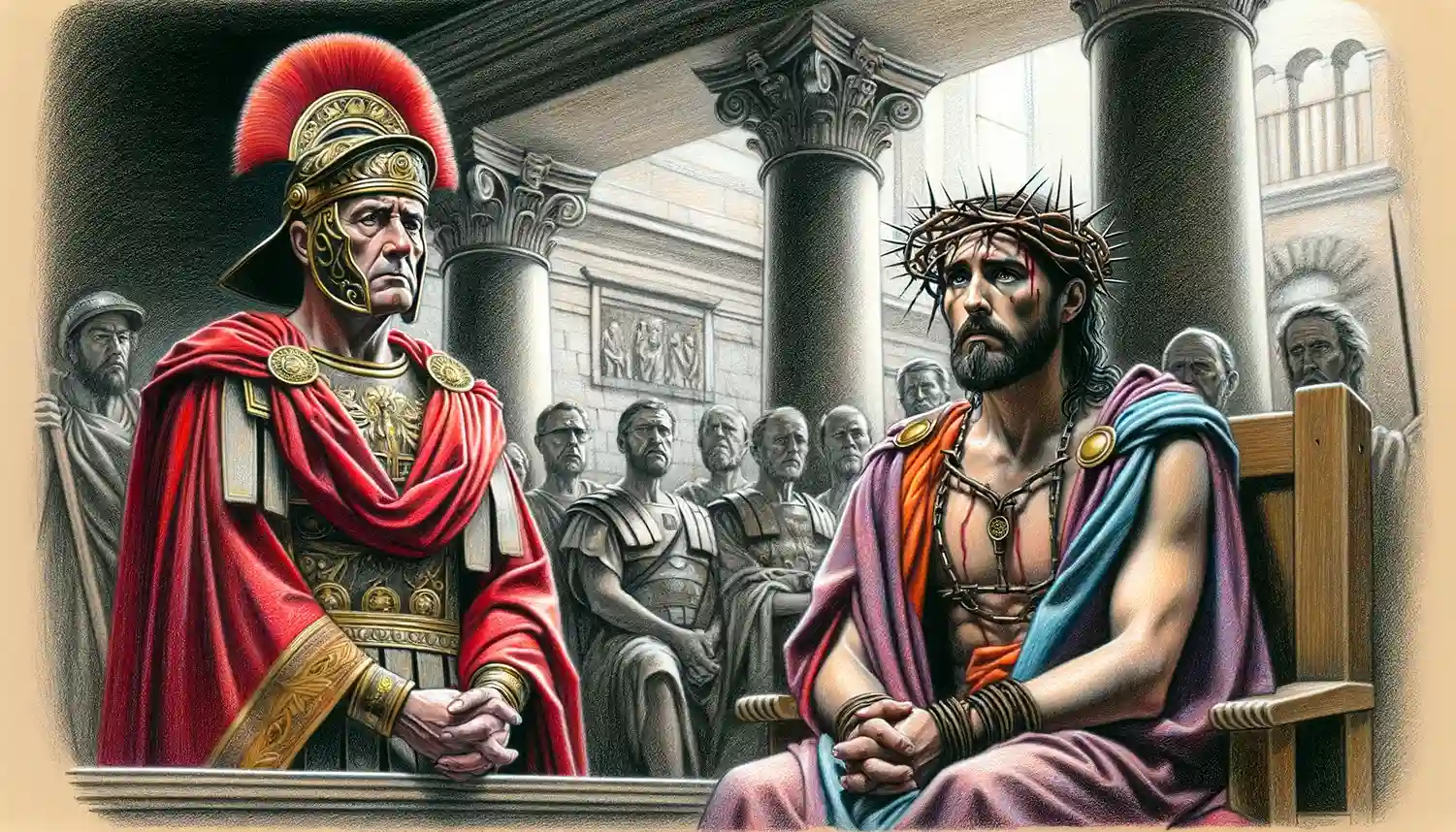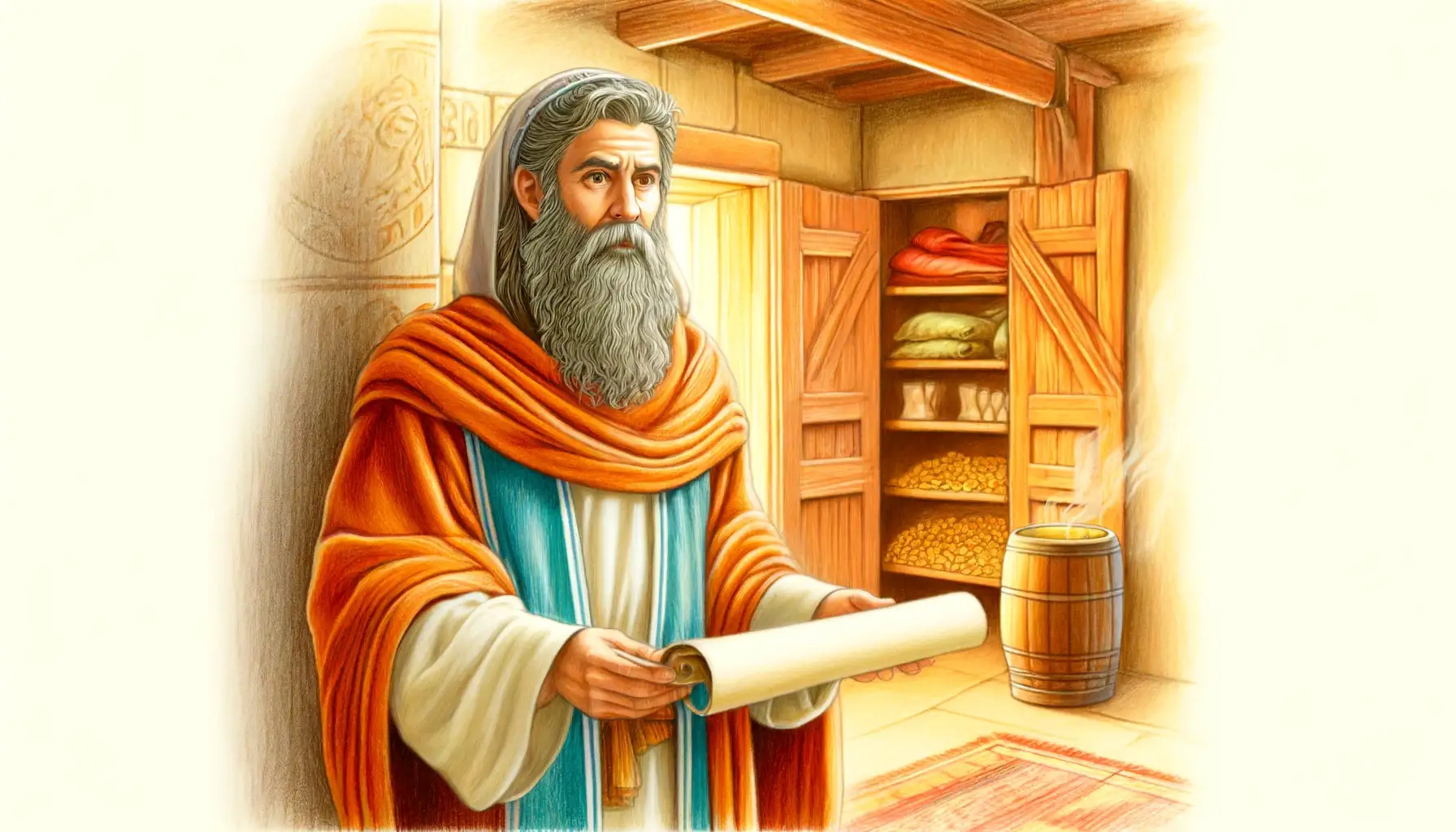Zechariah, a priest in the division of Abijah and husband to Elizabeth, was visited by the angel Gabriel who announced the birth of his son, John the Baptist; despite his initial doubt and subsequent muteness, Zechariah’s faith was affirmed, leading to his prophetic praise upon John’s birth.
Theophilus, whose name means “Friend of God,” is the recipient of the Gospel of Luke and Acts of the Apostles, with Luke’s intent being to provide an orderly account to assure Theophilus of the teachings he has received, though his exact identity remains speculative.
Titus, a key Christian leader in Crete and a trusted companion of Paul, was the recipient of an epistle that provides essential guidance on church leadership, sound doctrine, and Christian living.
Timothy, a close companion and disciple of Paul, played a crucial role in early Christian church leadership and received two epistles from Paul that provided guidance on doctrine, church organization, and personal conduct.
Silas, a key companion of Paul on his second missionary journey, played a crucial role in spreading the Gospel, enduring imprisonment and persecution, and helping establish early Christian communities in Thessalonica, Berea, and Corinth.
Sapphira and Ananias were a couple in the early Christian church who were struck dead for lying to the Holy Spirit about the proceeds from a property sale, highlighting the severity of deceit in God’s community.
Priscilla and Aquila, tentmakers and early Christian converts, assisted the Apostle Paul in his missionary work, hosted house churches, instructed Apollos, and played a significant role in the early church’s growth and leadership.
Pontius Pilate, the Roman governor of Judea, presided over the trial of Jesus and sentenced Him to crucifixion, a decision portrayed with reluctance in the Gospels, and symbolically washed his hands to show he was not responsible for Jesus’ death.
Philemon, a Christian slave owner in Colossae, received a personal letter from the Apostle Paul advocating for the welfare and reconciliation of his runaway slave, Onesimus, emphasizing forgiveness, reconciliation, and Christian brotherhood.
Nicodemus, a Pharisee and member of the Jewish ruling council, visited Jesus at night to discuss spiritual matters, later defending Him before the Sanhedrin and assisting in His burial, symbolizing a journey from curiosity to faith.

